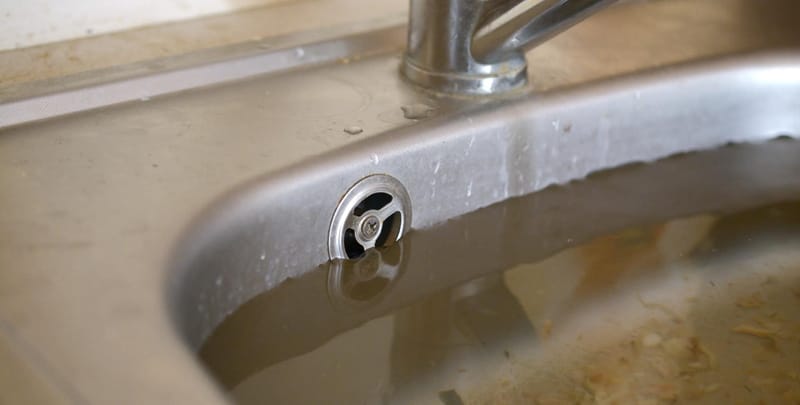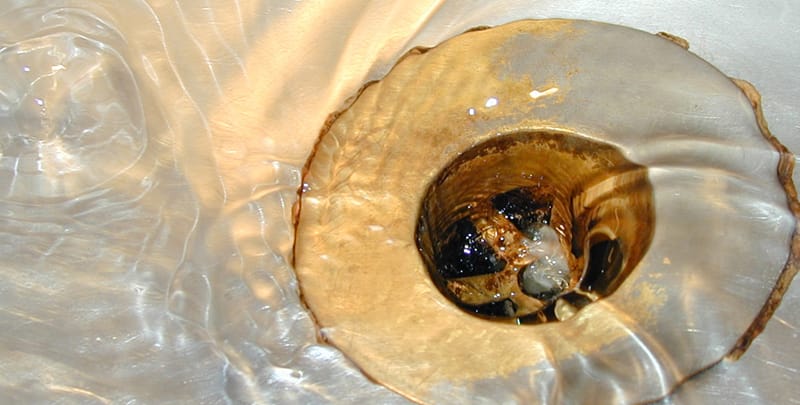
Understanding Blocked Drains
Blocked or clogged pipes and drains are a ubiquitous problem in households and commercial properties. They can disrupt daily routines and, if not handled promptly, lead to significant plumbing issues.
Addressing these blockages is essential for maintaining the functionality and hygiene of your plumbing system. In this blog, we’ll delve into the common causes of blocked or clogged drains and provide practical solutions to tackle them.
Whether you’re dealing with a minor clog or a more severe blockage, our guide will equip you with the knowledge to keep your drains flowing smoothly.
Blocked drains are a common plumbing issue that can cause inconvenience, damage, and costly repairs if left unattended.
This comprehensive guide will explore the various causes of blocked drains and provide practical fixes to help you maintain a smoothly functioning plumbing system. We will cover everything from everyday culprits like foreign objects and debris to insidious problems like tree root intrusions and boiling water everywhere.
By the end of this blog, you’ll understand the root causes of blocked sinks and how to prevent and address blockages effectively.
Common Causes of Blocked Drains
Blocked drains can be a significant headache, causing inconvenience and potential damage to your plumbing system. Understanding the most common causes of blocked drains is the first step in effectively preventing and addressing this issue.
This section will explore these blocked drain causes in detail and provide practical tips to help you maintain clear and functional drains.
1. Foreign Objects and Debris
One of the leading causes of blocked pipes and drains is the presence of foreign objects, human waste, and debris in your plumbing system. These materials can find their way into drains and pipes, obstructing water flow. Everyday items that cause blockages include:
- Toys: Children may accidentally drop small toys down the toilet or bathroom sink.
- Sanitary products: Items like sanitary pads, tampons, and wet wipes should never be flushed down the toilet, as they do not break down easily and can lead to blockages.
- Dirt and mud: During heavy rainfall, outdoor drains in your yard or driveway can become clogged with dirt and mud.
- Construction debris: During home renovations or repairs, debris like drywall, plaster, or construction materials may inadvertently enter drains.
To prevent these blockages, be mindful of what goes down your drains. Install drain covers or strainers to catch debris-clogged drain pipes, especially in areas where blockages in slow drains are common. Regularly clean out these covers to ensure they remain effective.
2. Hair and Soap Scum
Bathroom drains, particularly those in showers and tubs, are prone to blockages caused by hair and soap scum buildup. Over time, strands of hair can accumulate in the shower drain and pipes, creating a web-like obstruction.
The hair blockages, Soap scum, which result from the interaction between soap and hard water dissolved minerals within, can stick to the pipe’s walls and trap water stains and other debris.
To prevent hair and soap scum blockages:
- Use drain screens: Install drain screens or stoppers in your shower and tub drains. These simple devices catch hair and prevent it from entering the plumbing system.
- Regular cleaning: Periodically remove the drain cover and clean out any hair or debris that has accumulated.
- Use hair catchers: Consider using hair catchers or filters explicitly designed for your drains.
3. Grease and Food Waste
Kitchen drains are susceptible to blockages caused by grease and food waste. Grease, in particular, is a common culprit in kitchen and bathroom sinks everywhere.
When poured down the drain auger kitchen sink in liquid form, it can solidify as it cools, creating a sticky pipe barrier. Food scraps and particles improperly disposed of can accumulate over time, leading to blockages.
To prevent grease and food waste blockages:
- Proper grease disposal: Allow grease to cool and solidify in a container before disposing it in the trash. Never pour hot oil down the sink.
- Use sink strainers: Install sink filters or screens to catch food scraps before they enter the plumbing system.
- Scrape dishes: Before washing dishes, scrape excess food into the trash or compost bin.
4. Tree Roots
While it may seem surprising, tree roots can infiltrate hot water and cause a significant blockage of sewer lines, especially in older homes with clay or concrete underground pipes.
Tree roots naturally seek water sources, and if they infiltrate your underground water pipes, they can cause significant damage and sewer blockages.
To address tree root growth blockages:
- Regular inspections: Schedule regular professional inspections to detect root intrusions early, even if you don’t have blockage issues.
- Root cutting: A plumber can use specialised tools to cut and remove roots from the pipes once they identify them.
- Preventative measures: Consider planting trees away from sewer lines and invest in root barriers to deter root growth toward your pipes.
Understanding these common causes of water flow and blocked drains is crucial for preventing them in the first place.
By taking proactive steps and following the recommended precautions, you can maintain clear and functional gutters, saving yourself the hassle and expense of dealing with water drains and blockages.

Advanced Techniques for Stubborn Blockages
While DIY methods can be effective for minor drain blockages, a more advanced approach is sometimes necessary to tackle stubborn clogs.
A drain gauge hydro jetting or CCTV inspection may be required to move small solid objects from blockages and clear blocked drains. Professional plumbers typically apply these tools and techniques to resolve bottlenecks beyond DIY methods.
Drain Auger
A drain auger, or a plumber’s drain snake, is an advanced tool professionals use for deep blockages. The plumber uses a long, flexible metal cable with a corkscrew end and a drain snake to insert into the bottom drain opening and break up or remove blockages.
This tool is notably effective for handling too deep or stubborn blockages for a plunger or chemical cleaner.
Hydro jetting is a powerful technique that uses high-pressure, hot water to build up and clear blockages in metal or ceramic pipes, especially those caused by tree roots.
This method involves blasting boiling water through the lines at high pressure, effectively boiling water and breaking up and flushing out debris and blockages.
Professional plumbers usually perform hydro jetting, as incorrect usage of hot water under extreme heat and the force of boiling water can cause potential damage.
CCTV Inspection
CCTV inspection is valuable for locating and assessing tough clogs in your drainage system. By inserting a camera-equipped device tool into the clogged or blocked drain well, professionals can:
- Identify the exact location and cause of the blockage
- Determine the severity of the clog
- Assess the condition of the pipes
- Plan targeted solutions for clearing the blockage
The inspection method provides accurate and detailed information, helping to save time and money in the long run.
This method saves time and money by accurately identifying the problem and guaranteeing an effective solution.
Benefits of Hiring a Professional Plumber
Calling a professional plumber offers several advantages when dealing with drainage problems with blocked drains:
- Expertise: Plumbers have the knowledge and experience to diagnose the root cause of the blockage accurately.
- Specialised tools: They use advanced tools like drain cameras, hydro-jetting equipment, and drills to clear even the most stubborn blockages.
- Long-term solutions: Professionals can provide lasting solutions and recommendations to prevent future blockages.
How Professional Plumbers Address Blockages
Here’s an overview of how professional plumbers typically handle blocked drains:
- Inspection: The plumber begins by inspecting the affected drain using a drain camera to identify the location and cause of the blockage.
- Clearing the blockage: Depending on the severity and type, plumbers may use techniques like hydro-jetting, which involves high-pressure water to dislodge and remove debris, or mechanical drills to break up and clear the clog.
- Repair or replacement: If the blockage has caused damage to the pipes, the plumber will assess whether repairs or pipe replacement is necessary.
- Preventative measures: Plumbers often recommend preventing future blockages, such as regular maintenance and drain screens.
When choosing a plumbing service, opt for licensed and insured professionals with a solid reputation for quality work. Reading reviews and asking for recommendations from plumbing companies can help you make an informed decision.
Whether you decide to tackle a minor or significant blockage in a sink drain with DIY methods or seek the expertise of a professional plumber, addressing blocked sink drains promptly is crucial to maintaining a smoothly functioning plumbing system.
Ignoring blockages can lead to more significant issues and costly repairs, so take action as soon as you notice a blocked drain problem.

Preventing Future Drain Blockages
Here are some tips:
1. Regular Maintenance
Preventing blocked drains starts with routine maintenance. Regularly clean out drain covers and filters to remove accumulated debris. Inspect your plumbing and drainage system for leaks or signs of blockages and address them promptly.
Scheduling annual professional inspections is a proactive approach to identifying and addressing potential issues before they become significant problems. Plumbers can use video cameras to inspect the interior of your pipes and pinpoint areas of concern.
2. Installing Drain Screens and Filters
Installing these drain cleaners on screens and filters is an effective way to make drain cleaner prevent blockages caused by hair, soap scum, excess dirt, and food particles damaging pipes. Most hardware stores carry and sell these easily installable devices.
Choose drain screens and filters appropriate for your specific water pressure and drain types and clean them regularly to maintain their effectiveness.
How Often Should You Schedule Professional Plumbing Inspections?
There are situations with severe blockages where it’s best to call a professional plumber. If you encounter major pipe blockage in any of the following scenarios, seek expert help:
- The blockage is recurrent or doesn’t clear after multiple attempts.
- Multiple drains in your home are affected simultaneously.
- There’s a foul odour or wastewater backup.
- You suspect a more significant issue within your plumbing system.
Scheduling professional plumbing inspections can help prevent major plumbing problems and save you money on costly repairs in the long run.
The frequency of these inspections can vary depending on several factors, including the age and condition of your plumbing system, the type of plumbing materials used, and your specific usage patterns. Here are some general guidelines to consider:
1. Yearly Inspections
It’s a good idea to schedule a professional plumbing inspection once a year. This annual checkup can help identify and address minor issues before they become significant problems. This frequency is suitable for most residential plumbing systems.
2. Older Homes
If you live in an older home with outdated plumbing systems or materials, more frequent inspections, such as every six mon, may be necessary. Older pipes and fixtures are more prone to corrosion and leaks.
3. High Water Usage
Consider more frequent inspections if your household uses a significant amount of water. Regular use can lead to faster wear and tear on your plumbing system.
4. Seasonal Inspections
Consider scheduling plumbing inspections before the winter sea in regions with extreme weather conditions in areas with extreme weather conditions. Cold temperatures can lead to frozen pipes and other issues. Similarly, checks before the rainy season can be essential in areas prone to hurricanes or flooding.
5. After Major Renovations
You’ve recently completed a significant home renovation involving plumbing. Inspecting your plumbing system afterwards is a good idea to ensure everything functions correctly.
Remember that prevention is often more cost-effective than dealing with plumbing emergencies. Regular inspections can catch problems early, reducing the risk of water damage and expensive repairs.
Choosing a reputable, licensed plumber or plumbing service for these inspections is essential to ensure a thorough and accurate assessment of your plumbing system.
Address Your Plumbing Issues Immediately
In conclusion, blocked drains are a common plumbing issue that can disrupt your daily life and lead to costly repairs. You can maintain a smoothly functioning plumbing system by understanding the common causes of drain blocking and implementing preventive measures.
Whether being cautious about what goes down your drains, performing regular maintenance, or seeking professional assistance, taking proactive steps to slow water drainage can save you time, money, and frustration. Remember, a well-maintained plumbing system is essential for a comfortable and hygienic environment.
Please note: This information is provided for advice purposes only. Regulations differ from state to state, so please consult your local authorities or an industry professional before proceeding with any work. See our Terms & Conditions here.


